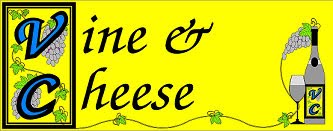My Spanish boxed wines prompted me to look into how much wine is sold in bulk in these times. Bulk wine is wine that is sold and shipped in tanks to the recipient who then packages it for retail. In Spain 57% of all wine sales are bulk sales; in France 20% is sold this way; in Italy, 33%. Over the course of the past decade in California, bulk sales have ranged between 15% before the recession to 50% currently, with an overall average of about 25%.
So why is this? The recession itself would be the immediate reason. Much bulk wine is wine that would have been bottled by its own producers if anticipated sales had not changed. Smaller producers have also been squeezed by the collaborative efforts of the mega-wine companies and their contractual partners in big box/chain retailers. Shelf space in chain stores available to small producers averages about 6% in most chains. Moreover wine has actually become commoditized in that those contracts to supply the retail chains don't stipulate estate fruit, but only a steady stream of supply.
If the truth be known, the current situation has been in the works for the past fifty years as the most ambitious wine companies grew exponentially in their competition to post the most sales. Whether it was to increase a portfolio through acquisitions or to grow particular brands through saturating the market with placements, these great wine companies succeeded in fundamentally changing the nature of the business. No more would wine be a specific reflection of a place but rather the reflection of a style and whatever that style of wine was, it would be copied ad infinitum with different labels offering very much the same product. Poll tested, always good, and always the same.
Enough of the rant. Here are some current truths that are non-partisan:
1. Technology has enabled the increase in bulk wine shipments which have become more cost efficient.
2. Consumption is down in much of Europe making exporting bulk wine to America advantageous for Europe.
3. The growth in bulk wine sales means that smaller estate bottled wine sales in general suffer and D.O. quality wines in particular suffer.
4. The surplus juice generated by the bad economy has reached an end worldwide. Look for changes in quality with some labels going away and others adapting to new realities.
This Thursday evening (5-7pm) David Klepinger of Northeast Sales will be here tasting out a number of superior european and domestic reds and whites. The highlights will include William Hill Napa Cabernet Sauvignon 2008 and Quatromani Franciacorta Italian sparkling wine. Please join us.
Monday, May 14, 2012
Subscribe to:
Post Comments (Atom)




No comments:
Post a Comment